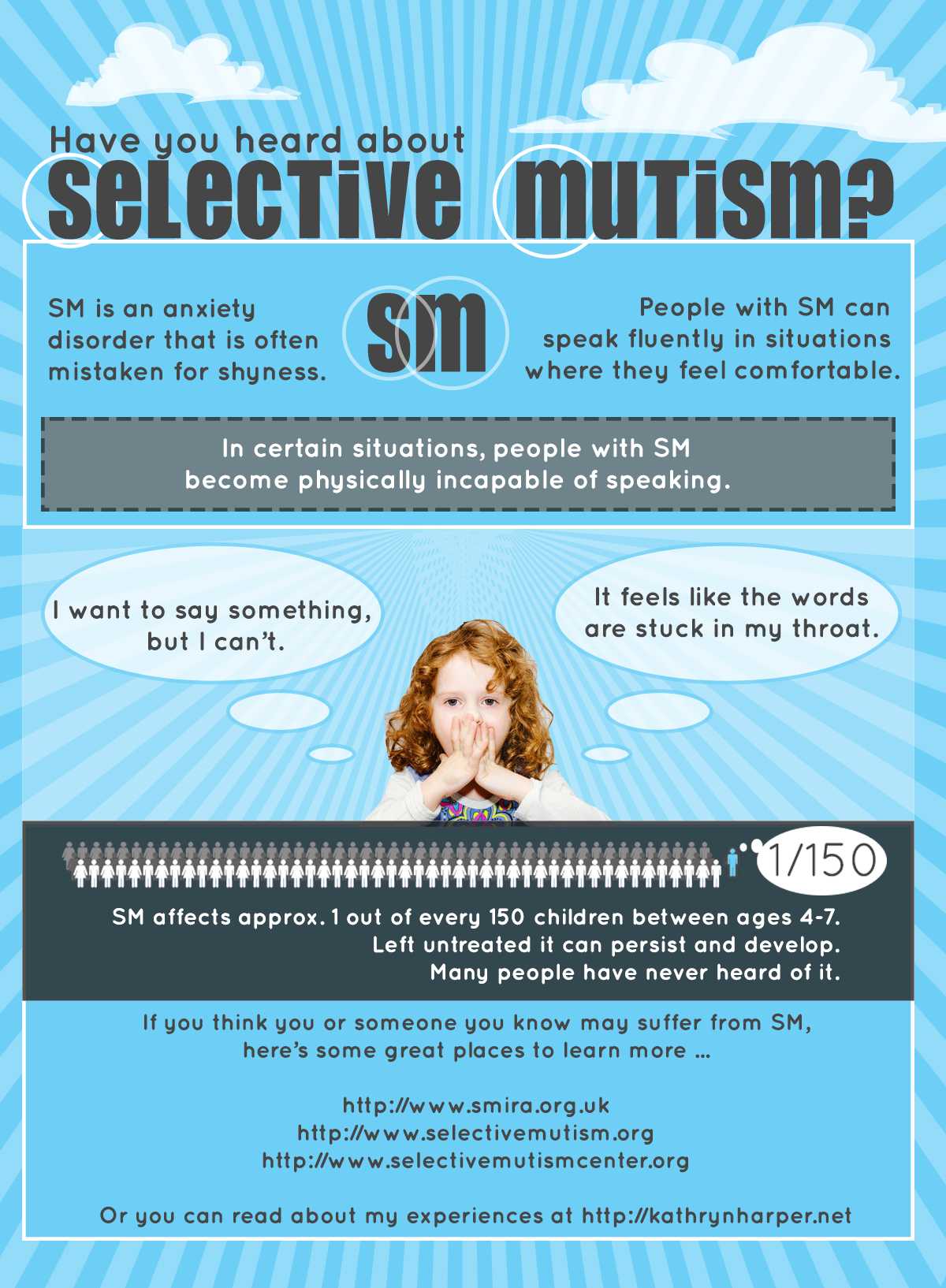
Selective mutism do you have it? These 3 super interesting things will help you know more about if you have it or not. It is the inability to speak when in a situation that there is an expectation to speak at.
Like in a social situation when you are expected to speak but do not. Selective mutism autism is commonly co-morbid with autism as it comes as part of selective mutism social anxiety.
How do I know if I have selective mutism?
1. Selective Mutism Social Anxiety: it is a part of a social anxiety condition, and presents it self as part of the social anxiety of social situations. If you already suffer from a social anxiety condition it is very possible and likely that you can and do suffer from selective mutism.
2. Selective Mutism And Autism: Autism is a neurological developmental condition characterised by social and communication difficulties. Autism also has co-morbid conditions attached to it, such as OCD, Dyslexia and Social Anxiety. This is to say that Selective mutism is very common within autism.
3. Selective Mutism Symptoms: Symptoms are mainly, overly anxious to talk in social situations so you do not talk. Another symptom is the inability to talk in a social situations and retreat back into yourself and do not engage with other people in social situations.

